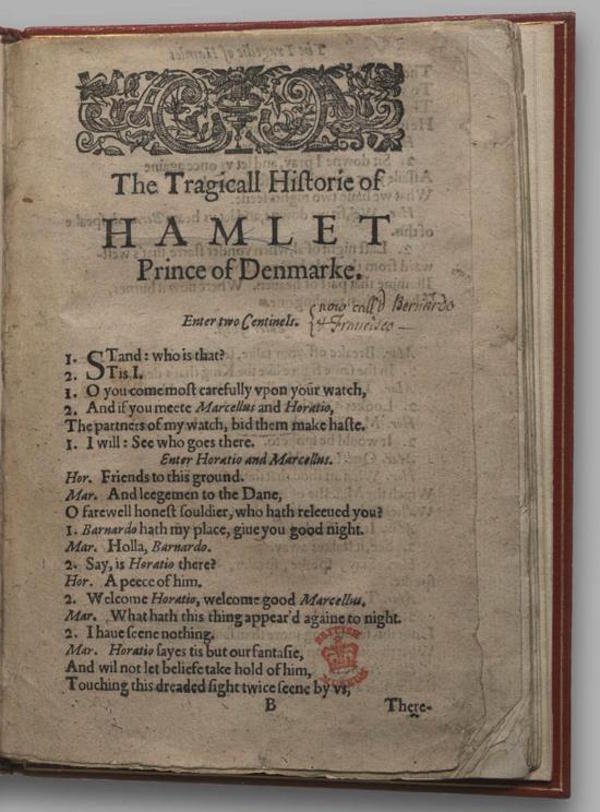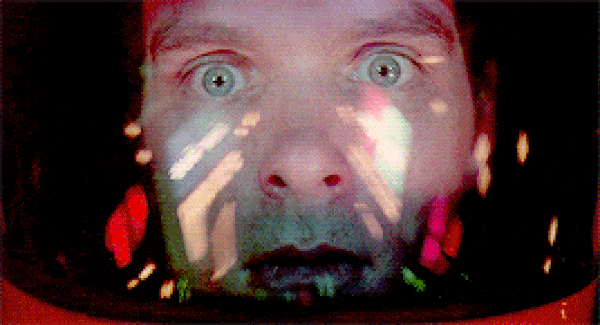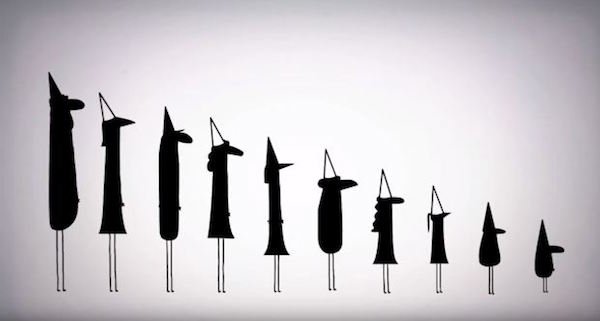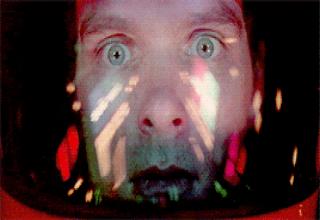9 paradoxes that will confuse you
Nathan Johnson
Published
09/20/2016
in
wtf
these might hurt your brain
- List View
- Player View
- Grid View
Advertisement
-
1.
 The Unexpected Hanging Paradox. This one is still puzzling some of the smartest logicians out there, and it goes like this: A judge tells a condemned prisoner that he will be hanged at noon on one weekday in the following week but that the execution will be a surprise to the prisoner. He will not know the day of the hanging until the executioner knocks on his cell door at noon that day. Those are the conditions of his execution. Having reflected on his sentence, the prisoner suspects that he’ll get pardoned. His reasoning is in several parts. He begins by concluding that the “surprise hanging” can’t be on Friday, as if he hasn’t been hanged by Thursday, there is only one day left – and so it won’t be a surprise. Since the judge’s sentence stipulated that the hanging would be a surprise to him, he figures it can’t happen on Friday. He then reasons that the surprise hanging can’t be on Thursday either, because Friday has already been eliminated and if he hasn’t been hanged by Wednesday night, the hanging must occur on Thursday, making a Thursday hanging not a surprise either. By similar reasoning he concludes that the hanging can also not occur on Wednesday, Tuesday or Monday. The next week, the executioner knocks on the prisoner’s door at noon on Wednesday — which, despite all the above, was an utter surprise to the prisoner. Everything the judge said came true. The reason why they’re still puzzling over it, is that there’s no definitive answer. The prisoner’s logic is sound, and yet, why is he surprised on Wednesday? There’s actual papers written on this, it’s that puzzling to the smartest guys out there. So far, no one has a definitive answer.
The Unexpected Hanging Paradox. This one is still puzzling some of the smartest logicians out there, and it goes like this: A judge tells a condemned prisoner that he will be hanged at noon on one weekday in the following week but that the execution will be a surprise to the prisoner. He will not know the day of the hanging until the executioner knocks on his cell door at noon that day. Those are the conditions of his execution. Having reflected on his sentence, the prisoner suspects that he’ll get pardoned. His reasoning is in several parts. He begins by concluding that the “surprise hanging” can’t be on Friday, as if he hasn’t been hanged by Thursday, there is only one day left – and so it won’t be a surprise. Since the judge’s sentence stipulated that the hanging would be a surprise to him, he figures it can’t happen on Friday. He then reasons that the surprise hanging can’t be on Thursday either, because Friday has already been eliminated and if he hasn’t been hanged by Wednesday night, the hanging must occur on Thursday, making a Thursday hanging not a surprise either. By similar reasoning he concludes that the hanging can also not occur on Wednesday, Tuesday or Monday. The next week, the executioner knocks on the prisoner’s door at noon on Wednesday — which, despite all the above, was an utter surprise to the prisoner. Everything the judge said came true. The reason why they’re still puzzling over it, is that there’s no definitive answer. The prisoner’s logic is sound, and yet, why is he surprised on Wednesday? There’s actual papers written on this, it’s that puzzling to the smartest guys out there. So far, no one has a definitive answer. -
2.
 The Sorites Paradox. This one plays with the definition of vague qualifiers that we use in daily life. Picture a heap of sand. If you take away one grain, is it still a heap? What about several grains? Still a heap? What if you take them all away and leave one? That’s not a heap, so when did it stop being a heap? This is where the paradox comes in. When there’s no definitive rules on how to use words like ‘heap,’ ‘pile’ and ‘bunch’ at what number do those things cease to be those things? So you can make up your own definition, of course i.e. a heap is 20 items, but a true solution should be iron-clad, and you’re just picking a number out of a hat. Or you can apply the principle of Hysteresis, in which the properties of an object are dependent on how they got that way, so a glass if half full or half empty based on whether or not you’re filling it, or drinking from it. Either way, there’s no answer to this one either.
The Sorites Paradox. This one plays with the definition of vague qualifiers that we use in daily life. Picture a heap of sand. If you take away one grain, is it still a heap? What about several grains? Still a heap? What if you take them all away and leave one? That’s not a heap, so when did it stop being a heap? This is where the paradox comes in. When there’s no definitive rules on how to use words like ‘heap,’ ‘pile’ and ‘bunch’ at what number do those things cease to be those things? So you can make up your own definition, of course i.e. a heap is 20 items, but a true solution should be iron-clad, and you’re just picking a number out of a hat. Or you can apply the principle of Hysteresis, in which the properties of an object are dependent on how they got that way, so a glass if half full or half empty based on whether or not you’re filling it, or drinking from it. Either way, there’s no answer to this one either. -
3.
 The Grelling-Nelson Paradox. This one is a linguistic paradox and requires an understanding of two terms: autological and heterological. An adjective is autological if, and only if, it describes itself; for example unhyphenated, pentasyllabic, and even the world English, because it’s in English. An adjective is heterological if, and only if, it doesn’t describe itself. So the words long, hyphenated and monosyllabic are heterologoical. Now the fun begins. If you’re asked if the word ‘Heterological’ is itself heterological, no matter wha you say, you’re contradicting yourself. If you say yes, then you believe the word does not describe itself, but it kind of is describing itself, which makes it autological. If you say no, then the word ‘Heterological’ is autological and is describing itself, but is fucking with the definition of what Heterological means.
The Grelling-Nelson Paradox. This one is a linguistic paradox and requires an understanding of two terms: autological and heterological. An adjective is autological if, and only if, it describes itself; for example unhyphenated, pentasyllabic, and even the world English, because it’s in English. An adjective is heterological if, and only if, it doesn’t describe itself. So the words long, hyphenated and monosyllabic are heterologoical. Now the fun begins. If you’re asked if the word ‘Heterological’ is itself heterological, no matter wha you say, you’re contradicting yourself. If you say yes, then you believe the word does not describe itself, but it kind of is describing itself, which makes it autological. If you say no, then the word ‘Heterological’ is autological and is describing itself, but is fucking with the definition of what Heterological means. -
4.
 The Monty Hall Puzzle. This is one to stump your buds. Imagine the old “Let’s Make a Deal” Game, hosted by Monty Hall. You’ve got 3 doors; behind 2 are goats and the final door has a car. You get to pick a door (let’s say A), but not open it yet. The host, who can see what’s behind all the doors, will open a door that has the goat (lets say door 3). If you’ve luckily chosen the door with the car, he’ll randomly open one of the goat doors. Then he’ll ask if you’d like to switch, what do you do? Probability states that if you change your door, the odds are better to win the car; 2/3rds better in fact. With the original door, you have a 1/3 chance, and the other doors have a 2/3 chance. When he opens the door with the goat, the 2/3 chance gets transferred to the remaining door. Sure, you might win with your door, but the odds are better if you switch.
The Monty Hall Puzzle. This is one to stump your buds. Imagine the old “Let’s Make a Deal” Game, hosted by Monty Hall. You’ve got 3 doors; behind 2 are goats and the final door has a car. You get to pick a door (let’s say A), but not open it yet. The host, who can see what’s behind all the doors, will open a door that has the goat (lets say door 3). If you’ve luckily chosen the door with the car, he’ll randomly open one of the goat doors. Then he’ll ask if you’d like to switch, what do you do? Probability states that if you change your door, the odds are better to win the car; 2/3rds better in fact. With the original door, you have a 1/3 chance, and the other doors have a 2/3 chance. When he opens the door with the goat, the 2/3 chance gets transferred to the remaining door. Sure, you might win with your door, but the odds are better if you switch. -
5.
 The Boot Strap Paradox. This one has to do with time travel and how if something is taken from the future into the past, how does it come into being? Think of it this way; if a time traveller buys a copy of Hamlet and goes back to Elizabethan England and gives it to Shakespeare, who copies it word for word and publishes it. That copy is printed, performed and reproduced over the next centuries, until a copy is placed in a bookstore for the time traveller to find, who then goes back in time to give it to Shakespeare. Who then, wrote Hamlet? There’s no answer to this one.
The Boot Strap Paradox. This one has to do with time travel and how if something is taken from the future into the past, how does it come into being? Think of it this way; if a time traveller buys a copy of Hamlet and goes back to Elizabethan England and gives it to Shakespeare, who copies it word for word and publishes it. That copy is printed, performed and reproduced over the next centuries, until a copy is placed in a bookstore for the time traveller to find, who then goes back in time to give it to Shakespeare. Who then, wrote Hamlet? There’s no answer to this one. -
6.
 Olbers’ Paradox. This one takes a look at the idea that the universe is infinite. Also known as the “Dark Sky Paradox,” it suggests that there must have been a beginning to the universe, and therefore an end, and that there must be a edge to it somewhere, due to the dark spaces between the stars. Think of it this way. If the universe is infinite, then odds are that there’s going to be a star everywhere you look. According to Olbers, the sky should be lit up all the time, as there’s always a stars light hitting us, and you should alway see a star in every inch of the sky; that”s just probability. But since there’s parts of the sky that are empty, then you can assume that the stars that were there, have died millions of years ago, and the light’s stopped coming to us, and there’s an end to it somewhere. If stars can die, so can the galaxy.
Olbers’ Paradox. This one takes a look at the idea that the universe is infinite. Also known as the “Dark Sky Paradox,” it suggests that there must have been a beginning to the universe, and therefore an end, and that there must be a edge to it somewhere, due to the dark spaces between the stars. Think of it this way. If the universe is infinite, then odds are that there’s going to be a star everywhere you look. According to Olbers, the sky should be lit up all the time, as there’s always a stars light hitting us, and you should alway see a star in every inch of the sky; that”s just probability. But since there’s parts of the sky that are empty, then you can assume that the stars that were there, have died millions of years ago, and the light’s stopped coming to us, and there’s an end to it somewhere. If stars can die, so can the galaxy. -
7.
 The French Paradox. This one isn’t so much a thinking problem, as it is a general question about the French population and their biology. You think I’m kidding, but Google it. The ‘French Paradox’ is a legit thing and the head scratching part is why they’re so healthy. They have low incidences of coronary heart disease, low obesity rates and a relatively high life expectancy, but they spend all of their time drinking, smoking, eating cheese and doing other French stuff. What gives? Some speculate its the moderate wine consumption, and the lack of processed foods. Or it could be that they spend more time on vacation, only work 35 hours a week, spend more time with family and generally have a laid back, laissez faire attitude.
The French Paradox. This one isn’t so much a thinking problem, as it is a general question about the French population and their biology. You think I’m kidding, but Google it. The ‘French Paradox’ is a legit thing and the head scratching part is why they’re so healthy. They have low incidences of coronary heart disease, low obesity rates and a relatively high life expectancy, but they spend all of their time drinking, smoking, eating cheese and doing other French stuff. What gives? Some speculate its the moderate wine consumption, and the lack of processed foods. Or it could be that they spend more time on vacation, only work 35 hours a week, spend more time with family and generally have a laid back, laissez faire attitude. -
8.
 The Hat Riddle. This one is actually solvable, but it’s a head scratcher. It makes sense when you know the answer, and you can totally stump your friends. Here’s how it goes. Aliens come to abduct you and 9 friends, and they’re going to kill you unless you can show that you’ve got higher brain functions. They devise a test where you need to line up in a row and are given a black or a white hat. You can only see the people in front of you and based on that information you have to guess the colour of your hat. You’re only allowed one wrong guess, so 9/10 is the best you can do. You also can’t step out of line and the only words you can utter during the game is “Black” or “White.” As the aliens go get the hats, they give you a minute to strategize. What do you do? Go. The solution is pretty straightforward. In that strategy session you encode meanings to the words ‘Black’ and ‘white’ and decide if they’re going to mean ‘even’ or ‘odd.’ Starting with the guy in the back, he should say Black for odd, and white for even, indicating that he sees and odd amount of black hats. Therefore, the person in front of them will know that if he sees an odd number, and they see an even number, then their hat must be black. From this each person can make a determination of what colour their hats are based on the previous person’s information. There’s also a variation of this puzzle, where no one speaks, and that gets pretty fucked up.
The Hat Riddle. This one is actually solvable, but it’s a head scratcher. It makes sense when you know the answer, and you can totally stump your friends. Here’s how it goes. Aliens come to abduct you and 9 friends, and they’re going to kill you unless you can show that you’ve got higher brain functions. They devise a test where you need to line up in a row and are given a black or a white hat. You can only see the people in front of you and based on that information you have to guess the colour of your hat. You’re only allowed one wrong guess, so 9/10 is the best you can do. You also can’t step out of line and the only words you can utter during the game is “Black” or “White.” As the aliens go get the hats, they give you a minute to strategize. What do you do? Go. The solution is pretty straightforward. In that strategy session you encode meanings to the words ‘Black’ and ‘white’ and decide if they’re going to mean ‘even’ or ‘odd.’ Starting with the guy in the back, he should say Black for odd, and white for even, indicating that he sees and odd amount of black hats. Therefore, the person in front of them will know that if he sees an odd number, and they see an even number, then their hat must be black. From this each person can make a determination of what colour their hats are based on the previous person’s information. There’s also a variation of this puzzle, where no one speaks, and that gets pretty fucked up. -
9.
 The Crocodile Paradox. This is more of a fable, than a scientific logic problem, but it’s doozy. A woman is walking along the banks of a river, when a crocodile takes her son. He says that he’ll release him if she guesses correctly if he will indeed return the boy. There’s no issue if she guesses he will return her son and the crocodile intended to return the boy all along. If she guesses wrong, then the boy gets eaten. If she guesses that he will not return the boy, but the crocodile intended to, then he’s got an issue. He doesn’t want to keep the boy, but he has to, because she got the answer wrong and he doesn’t want to contradict himself. If she’s right and he never intended to give him back, he has to, because he has to keep his word. So, it’s a conundrum. Of course, this is all predicated on a crocodile with a strong set of convictions. Confused yet?
The Crocodile Paradox. This is more of a fable, than a scientific logic problem, but it’s doozy. A woman is walking along the banks of a river, when a crocodile takes her son. He says that he’ll release him if she guesses correctly if he will indeed return the boy. There’s no issue if she guesses he will return her son and the crocodile intended to return the boy all along. If she guesses wrong, then the boy gets eaten. If she guesses that he will not return the boy, but the crocodile intended to, then he’s got an issue. He doesn’t want to keep the boy, but he has to, because she got the answer wrong and he doesn’t want to contradict himself. If she’s right and he never intended to give him back, he has to, because he has to keep his word. So, it’s a conundrum. Of course, this is all predicated on a crocodile with a strong set of convictions. Confused yet?
- REPLAY GALLERY
-

- 9 paradoxes that will confuse you
- NEXT GALLERY
-

- A dose of lowbrow humor
The Unexpected Hanging Paradox. This one is still puzzling some of the smartest logicians out there, and it goes like this: A judge tells a condemned prisoner that he will be hanged at noon on one weekday in the following week but that the execution will be a surprise to the prisoner. He will not know the day of the hanging until the executioner knocks on his cell door at noon that day. Those are the conditions of his execution. Having reflected on his sentence, the prisoner suspects that he’ll get pardoned. His reasoning is in several parts. He begins by concluding that the “surprise hanging” can’t be on Friday, as if he hasn’t been hanged by Thursday, there is only one day left – and so it won’t be a surprise. Since the judge’s sentence stipulated that the hanging would be a surprise to him, he figures it can’t happen on Friday. He then reasons that the surprise hanging can’t be on Thursday either, because Friday has already been eliminated and if he hasn’t been hanged by Wednesday night, the hanging must occur on Thursday, making a Thursday hanging not a surprise either. By similar reasoning he concludes that the hanging can also not occur on Wednesday, Tuesday or Monday. The next week, the executioner knocks on the prisoner’s door at noon on Wednesday — which, despite all the above, was an utter surprise to the prisoner. Everything the judge said came true. The reason why they’re still puzzling over it, is that there’s no definitive answer. The prisoner’s logic is sound, and yet, why is he surprised on Wednesday? There’s actual papers written on this, it’s that puzzling to the smartest guys out there. So far, no one has a definitive answer.
9/9
1/9
Categories:
Wtf








10 Comments